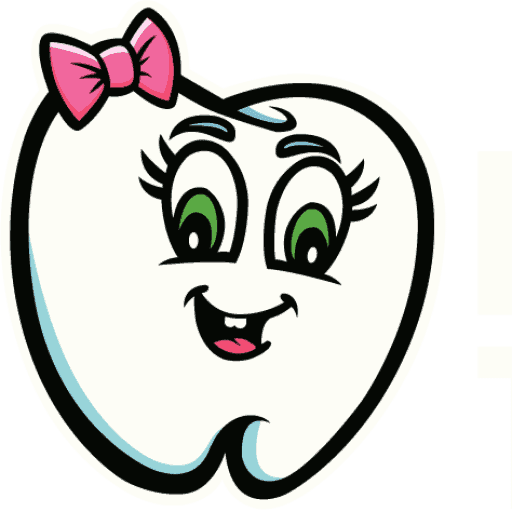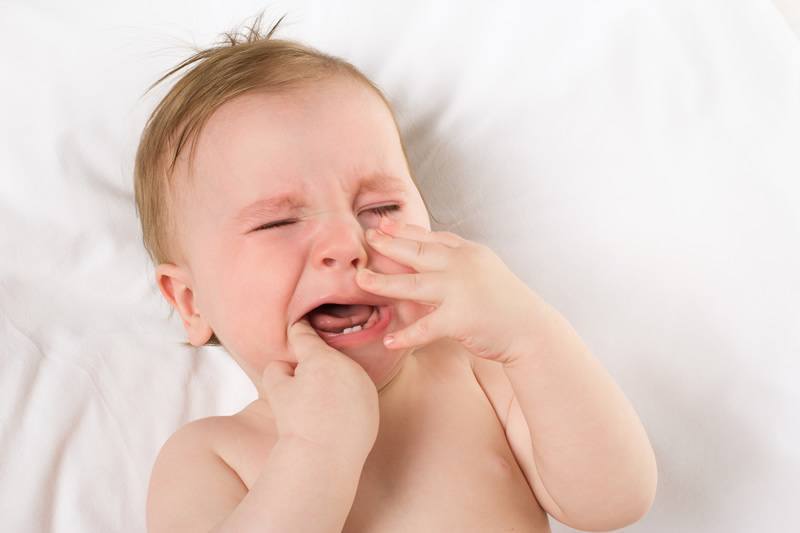Surprisingly, the first teeth, which are popularly known as the milk teeth, sprout when the baby is still in the womb. However, they only pop up from the gums when the infant is about six months old. This entire process is called teething. When and how it happens is different for every baby, which can be confusing to a parent, especially a first-time parent.
When a baby is undergoing this essential process, they may experience pain or discomfort, but it is not always the case. However, there are specific signs and symptoms that will let you know when a baby is most likely teething even if the symptoms are mild. Let’s discuss some of the symptoms that occur when babies are teething. But before we get to that, let’s start with when the teething process begins.
When Does Teething Begin?
Teething begins when your baby is about 4-6 months of age on average. In some children, the teeth can show up earlier or later. By the time they attain the age of three, they will have a set of 20 deciduous teeth, also known as milk teeth. The lower line of front teeth comes out first, followed by the upper front jaw. The rest show up afterward until the child attains the age of three years.
9 Baby Teething Symptoms Which Indicate That Your Little One is Teething
Your baby may experience all the symptoms below, a combination of the symptoms, or not show any of them. However, it is important to learn about them so you can assess your baby and have peace about what’s going on with them.
1. Irritable Ears – Ear pulling
When a baby is teething, they experience discomfort on the gum where the new tooth is coming through. Since they cannot scratch at their gums, they tend to pull on their ears. The ear, nose and throat system (ENT) is interconnected. Hence, it is logical for the ears of the baby to become irritable when they are teething. However, this may not be the only reason your kid pulls on their ears. It may be a symptom of another underlying condition.
2. Changes in Eating Habits
This is one of the most common symptoms of a baby teething. Their mouth faces many changes at this time including swelling and irritability. Hence, anything that comes in the mouth, adds more pressure to their gums. They are then likely to avoid foods and prefer foods they will not need to chew on. On the other hand, some babies tend to chew on anything in an attempt to scratch their gums. If this is going on, you may need to be trickier to get them to eat something.
3. Lack of Sleep
The teething baby may have difficulties trying to sleep. Most are more active at night than during the day. Others will intercept their sleeping periods with a series of crying durations. They will keep alert most of the time. If you have kids, you understand what this means. They interrupt your sleeping patterns as well. But, when you learn the symptoms, you are more likely to come up with relevant remedies.
4. Swollen Gums
As the first pearl white teeth prepare to shoot out, the gums swell. The swollen gums turn red and are sore. This affects the feeding patterns of the baby. They become picky eaters to avoid foods that can hurt their gums. But not to worry, you can help your child out of this problem. Using baby teething toys, you can ease the pain in your baby’s gums. The toys also decrease the need to chew on just any item, some of which may be hazardous.
5. Intense Drooling
While drooling is integral to child development, when it is excessive, it may mean that your baby has started teething. This is especially if it occurs during the teething duration. During this time, the baby loses lots of water through saliva. It may affect the concentration of their stool or urine, which can cause diaper rashes. So diaper rashes are often paired with a baby teething, but it is actually an indirect effect of a change in saliva.
6. Fever
When babies are teething, their body temperature shoots up. This in turn causes fever. In some babies, the fever is manageable whereas in others you will have to contact a doctor. You can sense if the baby has a fever by touching your wrist to their forehead. A health practitioner may recommend some kind of medication to reduce the fever and irritation, but it won’t necessarily cause the fever to leave. It just masks it for a while. Most fevers associated with teething are fairly low grade and mild.
7. Diarrhea
Diarrhea is another symptom of teething in babies. This too is not unique to the growth of new teeth. However, when it is accompanied by fever among other symptoms, which have been discussed above, it may signal teething. Diarrhea can cause dehydration. Therefore, it is important that you do not ignore it. Take the baby to the doctor so they can advise you on the best treatment.
8. Runny Nose
As mentioned earlier, there is a connection between the nose, ear and mouth. While there is no specific data on how this works, a runny nose may mean that the child is set for teething, especially if it’s connected with other symptoms. However, if it’s not connected with other symptoms, it may simply be a runny nose.
9. Facial Rash
Some babies show rashes on their faces. The rashes are small and spread out from the face down to the neck. They may be a symptom of teething but may also be a sign of something else. Hence, consider consulting a doctor to be advised on the best medications.
Conclusion
Teething is one of the most important stages in a baby’s life. However, it can be the most challenging for some children. Particularly when it comes to certain serious symptoms, such as fever and diarrhea. Though this list of symptoms is meant to help you diagnose when your child is teething so you’re not worried, you should always be aware of severe symptoms or ones that may be lasting longer than usual and consult your doctor if you’re concerned.
There are many teething remedies on the market but do not try any medication without consulting your doctor. Teething toys, gels, rings and amber teething necklaces are some of the over-the-counter remedies you can use to make this process less overwhelming for your little one. Teething can be a trying time in the life of your baby and for you as a parent, but the good news is it doesn’t last forever.

